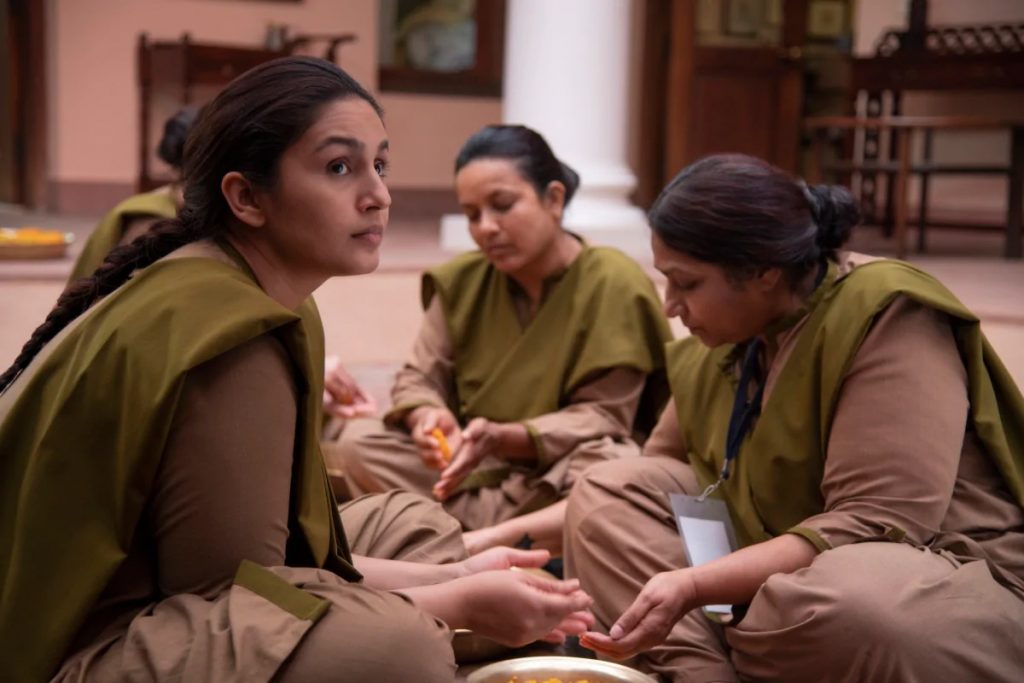Netflix’s latest Indian series, Leila, is based on a 2017 novel by Prayaag Akbar. Although the adaptation (helmed by director Deepa Mehta) is more political than the source material, it gets some timely ideas across about dystopian autocracies.
Shalini Rizwan Chowdhury’s (Huma Qureshi) life is upended when men break into her home, killing her Muslim husband and abducting her to a women’s reform center. She no longer lives in India: she lives in Aryavarta, a world that values tradition and ‘purity’ over everything else, ruled by the always-smiling Joshi. She spends two years at the Vanita Mukti Kendra, performing rituals that brings the horrors of the Handmaid’s Tale to mind. However, she hasn’t forgotten about her daughter, Leila, and she spends the rest of the miniseries searching for her.
The world of Aryavarta, set in the 2040s, is very potent and filled with powerful symbols and imagery. The social order has mostly broken down following severe water shortages and air pollution, and everyone has erected walls around their gated communities. Shalini travels through this wartorn, barely standing still nation, dealing with various officials and the men and women behind them who have benefitted from this new social order.

The story jumps all over the place, alternating between personal narratives and more broader, political threads. But it paints a stark future, where many current practices are evolved to their natural endpoints. Shalini works in a handful of homes as the domestic help, and there she is often ordered to work (and remain silent) much the way we order our buas around in Bangladesh and India.
There is a resistance brimming underneath the dirty, filth-ridden slums surrounding Aryavarta, but it too is ruthless, driven to its cause and willing to put Innocents at risk to achieve its objectives. The story ends on a cliffhanger that is both novel and frustrating at once. It tries to suggest both the resigned finality of 1984 and the lionized resistance of V for Vendetta, and thus the series ends in a rut.
Leila is a curious addition to Netflix’s slate of original Indian content, in that it criticizes many government-sponsored actions through the veil of fiction. Like Ghoul, it paints a world where fear and paranoia has divided people and demonized intellectuals. Some have already criticized Layla for being Hinduphobic: the residents of Aryavarta, for instance, often pride themselves of being ‘shudh’ (pure) and vegetarians. There is also marked tensions between the elite and lower classes: many higher officials in Aryavarta have grassroots origins, while the rich urbanites are often targeted by the government and brought down at the slightest offense.
Overall, Leila is a decent watch, a good appetizer to warm yourself on the buildup to Sacred Games season two.